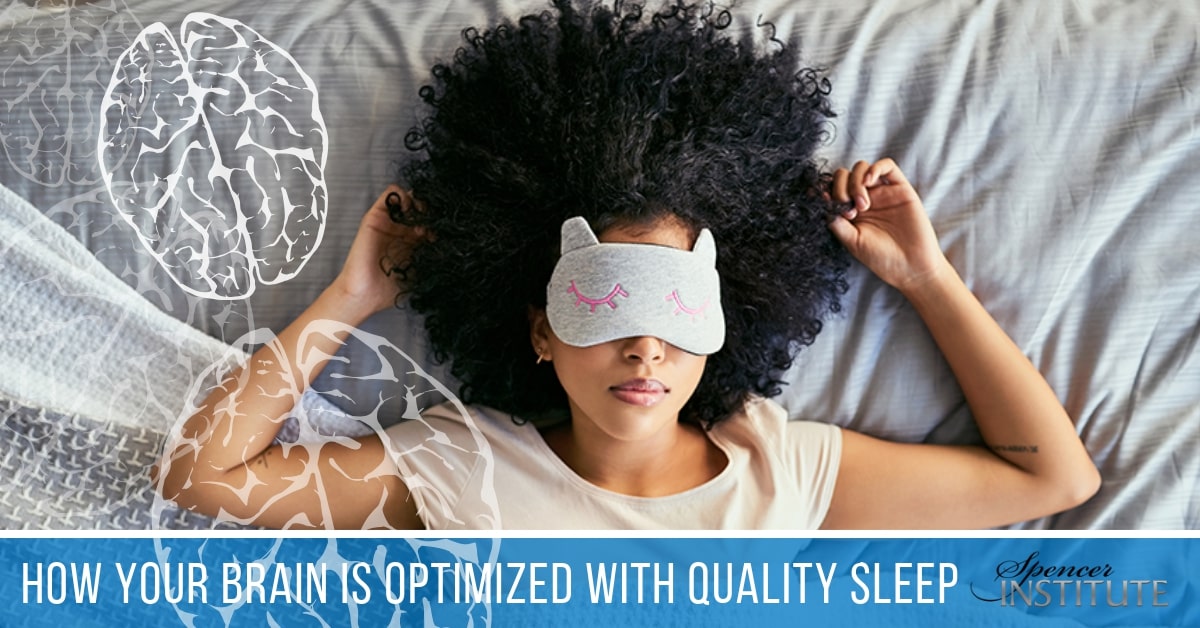 As a Certified Sleep Coach or Brain Fitness Coach, you know that a clear and rested brain works at peak efficiency after quality sleep. A well-functioning brain creates more opportunity for success in each aspect of life.
As a Certified Sleep Coach or Brain Fitness Coach, you know that a clear and rested brain works at peak efficiency after quality sleep. A well-functioning brain creates more opportunity for success in each aspect of life.
Quality sleep is 7 to 8 hours of restful, uninterrupted sleep. The National Sleep Foundation defines quality sleep as:
- Sleeping more time while in bed (at least 85 percent of the total time)
- Falling asleep in 30 minutes or less
- Waking up no more than once per night; and
- Being awake for 20 minutes or less after initially falling asleep.
Sleep loss can damage your health. Less than 7 hours of sleep or not meeting the listed requirements would be bad for your health. Sleep deprivation has the same effect on your immune system as physical stress or illness which explains why a lack of sleep is tied to an increased risk of chronic diseases.
According to Harvard Health News (AUG 2012), a good night’s sleep is essential for maintaining good health, keeping you alert and energetic, and building your body’s defenses against disease. And a growing number of studies have linked long-term sleep deficits with significant health problems including:
Viral Infections – When you’re tired and run-down, you’re more likely to get sick. According to a 2009 study published in Archives of Internal Medicine subjects who slept an average of fewer than seven hours per night were three times more likely to get sick as those who averaged at least eight hours.
Weight Gain – A 2008 review of 36 studies published in the journal Obesity stated that insufficient sleep makes you more likely to gain weight. Lack of sleep disrupts hormones that control hunger and appetite, and the resulting daytime fatigue discourages exercise.
Diabetes – People who sleep less than five hours per night have a threefold higher risk of type 2 diabetes compared with those with no sleep complaints and who slept six or more hours nightly. The underlying cause is thought to involve a disruption of the body’s normal hormonal regulation, specifically the pituitary gland.
High Blood Pressure – In a 2009 article in the journal Sleep, researchers found the risk of high blood pressure was three-and-a-half times greater among subjects who slept less than six hours per night compared with those who slept six or more hours nightly.
Heart Disease – Sleep deprivation increases risk factors for heart disease, including higher cholesterol levels, higher triglyceride levels, and higher blood pressure. A 14-year study of 98,000 Japanese men and women compared subjects who slept seven hours with those who got no more than four hours who were found to be twice as likely to die from heart disease. Sleep (2009)
According to the National Institute of Neurological Disorders and Stroke (NINDS), you should make sleep a priority. If you get optimum sleep, you’ll be able to make clearer decisions while increasing your creativity. Sleep is clearly necessary for your nervous systems to work properly. It gives your body and your brain “downtime” for growth and repair.
How You Can Help
When you become a Certified Sleep Science Coach, you will learn how to help your clients dramatically enhance their metabolism, memory, creativity, immune function, hormone balance, hunger management, disease prevention, sports performance, accident avoidance, memory, reaction time, good judgement, surgery recovery, happiness and over 100 additional functions and behaviors.
Become a leading authority on brain optimization through proper training, sleep, nutrition, neuro-conditioning and flow state. As a Brain Fitness Coach, you know how important things like mindset, focus, clarity, determination, distraction control and flow are to success: mental, physical or financial.
Our programs are open to anyone with a desire to learn and help others. There are no prerequisites.
That’s it for now.
Take action!
PS: Click here to see many helpful business/career resources










